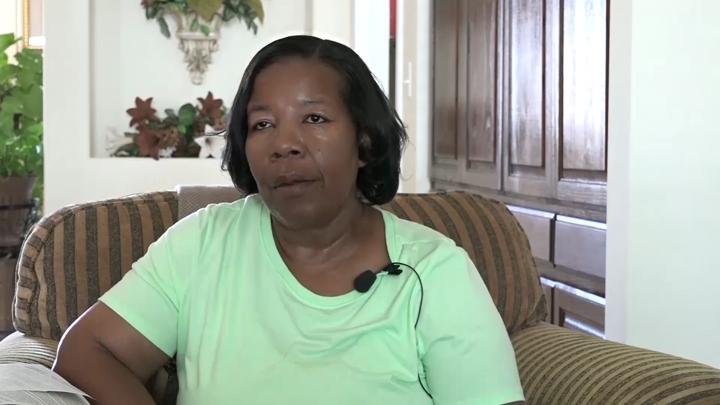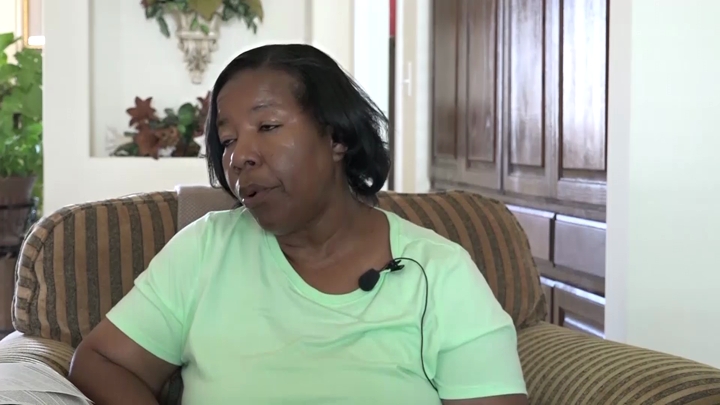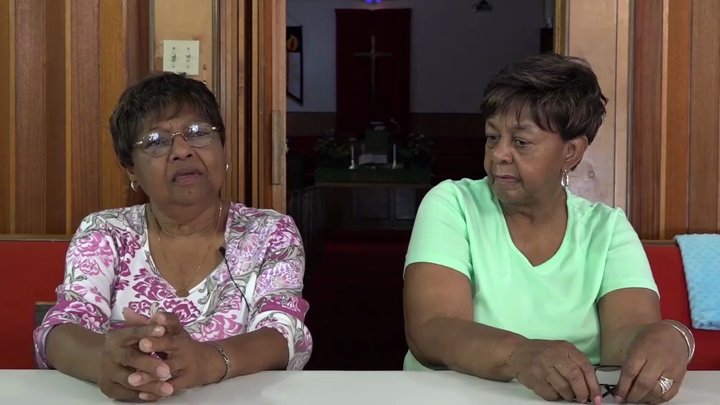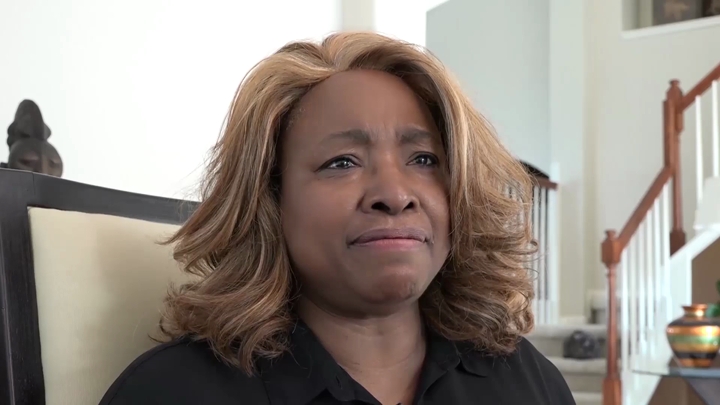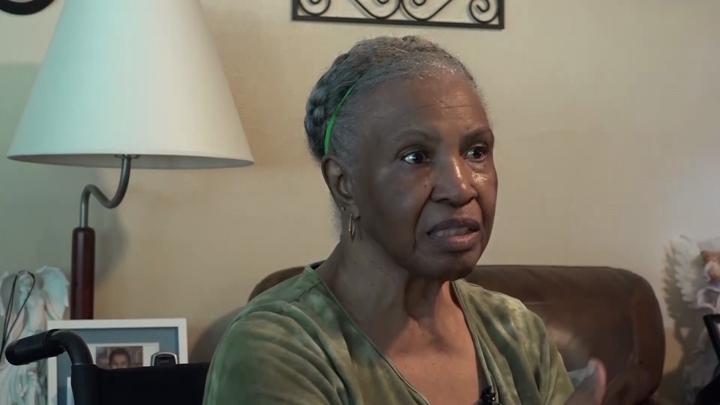Littleton / Childhood Memories and Family, Part Two
sign up or sign in to add/edit transcript
Littleton: They said, “You know, JoAnn, we’ve never had a black person be on student council.” I said, “Well, it’s time for us to break down these barriers.” I’m running for student council and my slogan was “Let’s add a little color to Crane High School. You know, the teachers were like “What?” but my classmates were like “Yeah, yeah, yeah, that’s right! That’s right!” So, needless to say, I was elected. First African-American elected to the student council in Crane. So, that just kind of went along with it and then I was a freshman and I made varsity volleyball. Well, a freshman making varsity volleyball? No, you’ve got to go to freshman—you’ve got to work your way up. Oh, no. Uh-uh. No. So, I tried out and I got on the team. Four years we were volleyball champs. I got all district in volleyball and it was just a great experience growing up in Crane. Everybody knew everybody, and we were champions. We were leaders. Everyone in my graduating class, we were taught—we had Crane pride. (inaudible) and Crane pride. We were winners. We were achievers. We were going to do something in life. That was instilled in me and that’s just how I felt. Interviewer: What year did you graduate? Littleton: Nineteen seventy-six. Interviewer: Everything you’re saying is just great. One thing I was thinking about, especially being an oil town. Were African-Americans or other people of color generally allowed into the workforce of the oil industry when you were growing up? Littleton: Well, like I said, Crane was a small town, and everybody knew everybody. My grandparents owned the Dew Drop Inn Café, and everybody came to the café to eat. So that’s Joann’s, that’s Irene’s daughter, that’s Esteen and Don Bishop’s granddaughter, that’s Ed May’s great granddaughter. My great grandfather was very good friends with the judge, the sheriff, everybody in town. So, everybody knew everybody and really, I didn’t have to get a job because my grandparents and my great grandparents, they provided for us. It was there. That’s Joann. That’s Esteen and Don’s great granddaughter. She’s not going to get in any trouble. We don’t have to worry about her. Whatever she needs. You got to town drug store. “Hi Joann.” “Hi Mr. Lilly. My mom needs—” “Oh, no problem. Just sign the ticket and take it.” If you were from Crane, you fit in. If you were an outsider, we don’t know anything about you. So, you were kind of an outcast. Interviewer: How big of a town was Crane? Littleton: Three thousand. Interviewer: About three thousand? Littleton: Mmm-hmm, and there’s one church. Everybody goes to the same church. There’s two swimming pools. The white swimming pool and the colored swimming pool and once again, knowing your place? I didn’t know my place. My place was everywhere. Joann don’t you know? I said I’m sorry. I don’t like that. I’m just—people are people.
| Interview | Interview with Joann Littleton |
| Subjects | Work › Black-Owned Businesses |
| Housing › Neighborhoods | |
| Religion › Churches | |
| Education | |
| Education › Secondary Education | |
| Education › Extracurricular Activities | |
| Recreation and Leisure › Swimming | |
| Discrimination or Segregation › Discrimination or Segregation of Public Accommodations › Swimming pools | |
| Tags | Crane High School |
| sign up or sign in to add/edit tags | |
| Interview date | 2016-07-06 |
| Interview source | CRBB Summer 2016 |
| Interviewees | Littleton, Joann |
| Duration | 00:04:03 |
| Citation | "Childhood Memories and Family, Part Two," from Joann Littleton oral history interview with , July 06, 2016, Odessa, TX, Civil Rights in Black and Brown Interview Database, https://crbb.tcu.edu/clips/3060/childhood-memories-and-family-part-two, accessed February 27, 2026 |


